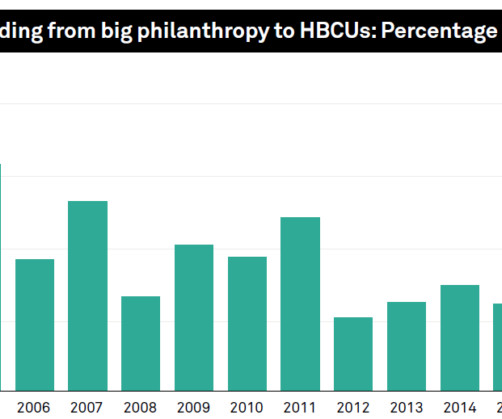5 things to know about philanthropy to HBCUs
Candid
MAY 9, 2023
For every $100 foundations give to an Ivy League school, how many dollars do you think foundations give to a historically Black college and university (HBCU)? Candid and ABFE partnered to create and publish Philanthropy and HBCUs: Foundation funding to historically Black colleges and universities.












Let's personalize your content